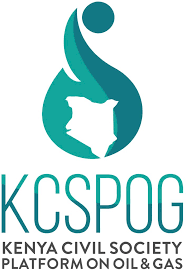Where is Our Money? Benefit Sharing for Local Communities in the Oil and Gas Sector.
By Emmaqulate Moranga
“Recently we saw trucks transport oil from Lokichar to Mombasa but where are yet to receive
our 5% share. Where is our money?”. These were some of the questions which dominated our
Turkana County workshop.
Oil and gas projects are usually commissioned with promises of manna to the local
communities. The commencement of these projects depicts economic and other social benefits
to communities. With these promises, communities will have expectations on how their lives
will change for he better. One particular form of benefit is the 5% share, provided for under the
petroleum Act . The 5 % is a share of the national government’s profits derived from upstream
petroleum operations.
Why are local communities owed benefits?
Natural resources are held in trust by the Government for the people of Kenya, who should
then benefit from their exploitation. Narrowing it down, local communities who host these
resources stand to suffer more intimate impacts, be it environmental, social, health, and
cultural. This warrants a specific share of benefits from the natural resource exploitation
directed at these communities.
When and how is the 5 % paid?
Since the 5 % is a profit cut to the community, it will be due to communities at post-production,
when the government starts receiving profits from the oil. According to the Petroleum Act, the
5% share of benefits is not to be paid to the communities directly, but into a trust fund
established by the relevant county government in consultation with the local community.
The subject of the community’s questions is the oil trucked to Mombasa as part of the Early Oil
Project Scheme (EOPS). The (EOPS) was meant to produce, transport and export the Turkana oil
to test its economic viability in the international market. It was not a profit generating venture,
a reason the community has not received its 5% benefits share.
Currently, there is no framework on what form the 5 % benefit shall take, whether it shall be
monetary, or in form of projects for the community. There is also no framework on how to
determine the affected members, and how every affected member shall benefit.
It is however important to point out that despite benefits from the oil and gas projects, county
and national government still have obligations on service delivery to the local communities,
such as provision of clean drinking water, schools and hospitals, all of which are human rights
under the constitution. These obligations should not in any way be delegated to oil and gas
investing companies.
